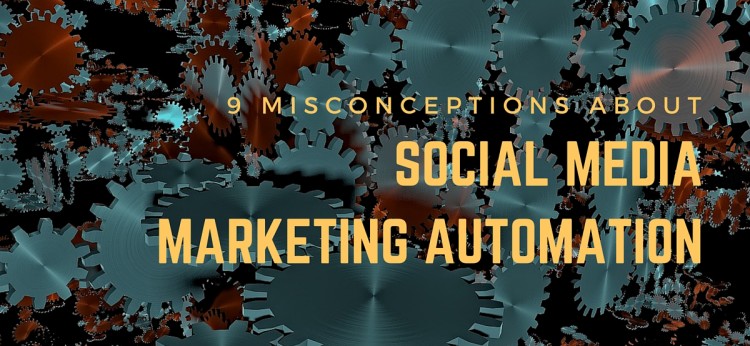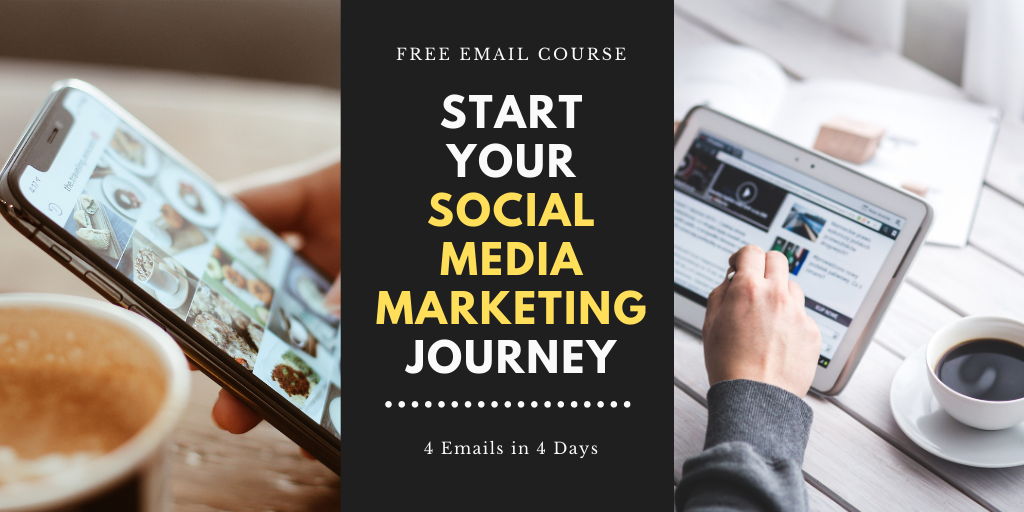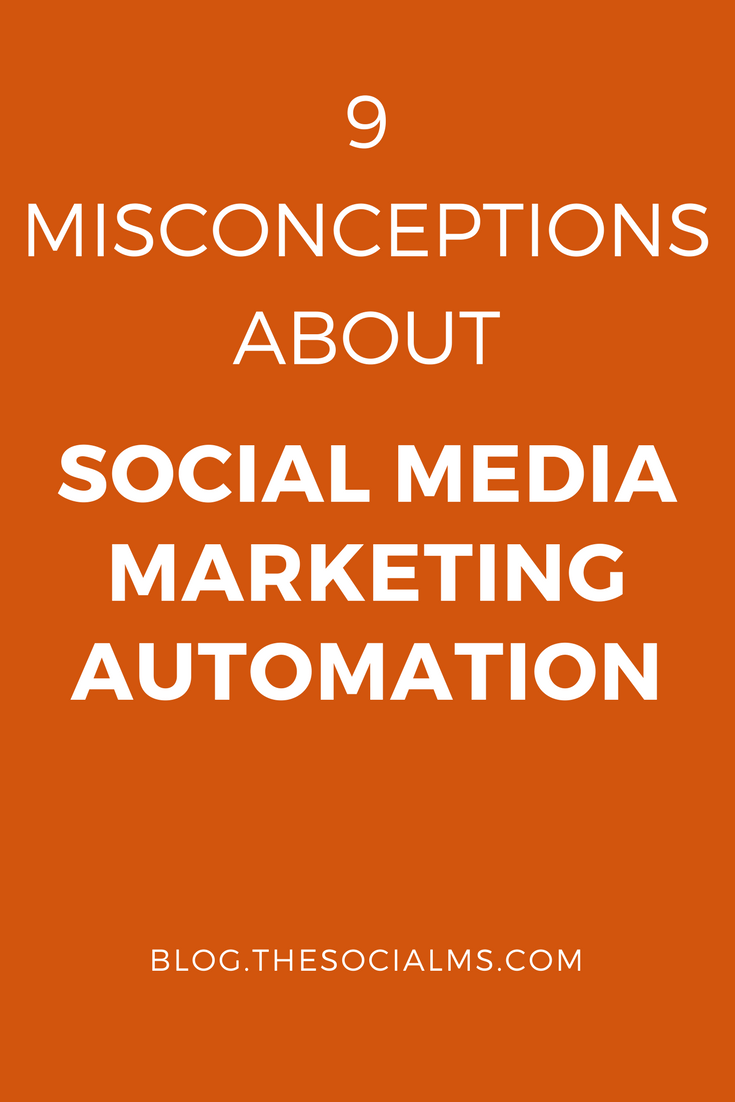I often hear or read that social media marketing automation is bad, that I should never do it. The most heated discussion usually springs up when Twitter’s direct messages come into the debate, and the tenor then is never to automate them.
Why? Social Media should be social after all and not a robot throwing out messages or desperately trying to replace human beings.
What I often miss in the heated discussion about social media being social and automation not being social is that I and millions of other people in social media are talking about social media MARKETING and not social media chit chat or social media-I have nothing else to do. They are trying to get marketing results for a business while they have to work full time on their real job.
Advice on how to keep going without automation while working hard on something else is usually: „Tell someone in the office to tweet your content while you cannot do it yourself“ or “leave an editorial calendar for your assistant.” Sorry, but what kind of advice is that for a one man/woman show or like us here a The Social Ms: Two people juggling several huge social media accounts in various social networks, creating online products, working on clients projects and marketing all that on a budget?
Before you read on - we have various resources that show you exactly how to use social networks to gain massive traffic and leads. For instance, check out the following:
FREE Step-by-Step Twitter Marketing GuideFREE Pinterest Marketing Ebook
Marketing is about results. And while you may argue that it is not always about the biggest numbers, that was not what I was saying. Results do not necessarily have to be the biggest numbers; you should also listen to your audience. But the truth is there will always be some people who do not like my marketing strategy, the big question is: “How many others do?”.
To illustrate my point, let’s start with the black sheep of social media marketing automation: Automated direct messages on Twitter
Back in the days of our publishing platform exploreB2B, people kept telling us, that we should not send automated direct messages on Twitter because if we did, people would not follow us. You know what happened? Twitter’s direct messages turned out to be our most effective marketing channel. By simply inviting people to publish their business content on our platform, we triggered exponential growth of users on exploreB2B and managed an incredible success rate of 30%.
 It may be that some people did not keep following us after receiving the automated direct message. But we as a startup with no marketing budget just could not afford to miss out on a huge marketing opportunity that we were getting for almost free. And our accounts grew so fast that the small number of people we annoyed and which turned from us, we could easily live with.
It may be that some people did not keep following us after receiving the automated direct message. But we as a startup with no marketing budget just could not afford to miss out on a huge marketing opportunity that we were getting for almost free. And our accounts grew so fast that the small number of people we annoyed and which turned from us, we could easily live with.
Of course, there are bad direct messages, there are also bad advertisements, and there are bad social media postings. The trick is not merely to do or not do something; it means to get it right or leave it.
The direct message case for me is synonymous with how marketing automation is perceived and misunderstood.
1. It’s always evil
Sometimes when talking or reading about marketing automation, I get the impression that it’s regarded as the enemy of all “good” marketing – whatever “good” may be in this case. I beg to differ. I see marketing automation and the tools that help you to automate some of your most time-consuming tasks as a big gift to all marketers. We get a ton of opportunities for our marketing and it is up to us to use it with care and make sure that our audience still feels treated with respect.
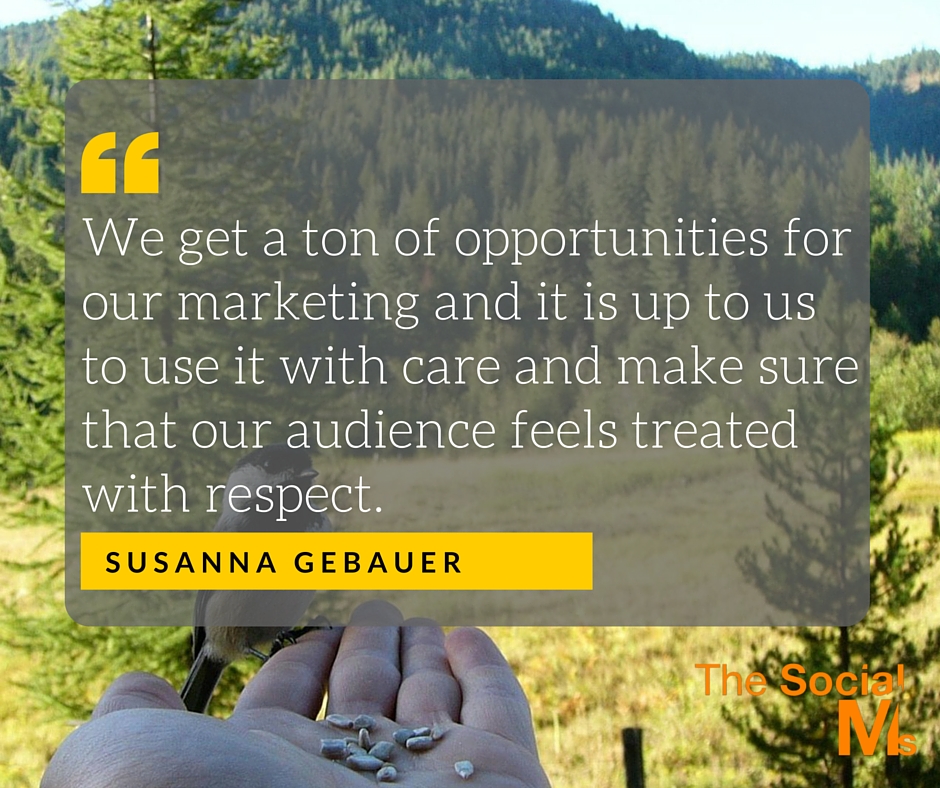 For many small businesses, startups and entrepreneurs marketing automation is the chance to participate in the concert of the big on social media and still get their work done. Especially when accounts grow marketing automation can help to manage social media without investing a full-time job.
For many small businesses, startups and entrepreneurs marketing automation is the chance to participate in the concert of the big on social media and still get their work done. Especially when accounts grow marketing automation can help to manage social media without investing a full-time job.
2. More is always good
As much as a appreciate marketing automation, sometimes much is just too much. When I read that people automate their accounts to retweet automatically everything a given account tweets or a set amount of tweets that include a certain hashtag, I get the creeps. Sorry, but although I do automate a lot, I do not share something I did not look at before. There are some automation processes I would not do.
Hey, before you read on - we have in various FREE in-depth guides on similar topics that you can download. For this post, check out:
FREE workbook: CREATE AWESOME BLOG POSTSFREE Beginner's Guide: START A BLOG
However, I will not tell you never to do it. Why? Because it’s only you, who can evaluate your situation and make a decision whether an automation procedure is going to hurt or help your social media marketing.
3. Less is always better
Of course, social media is social, and you should include your personality and some conversation into your social media marketing strategy. However, to aim at doing as little automation as possible does not sound like the best strategy.
I strongly doubt that anyone would define their marketing goal as “do as little automation as possible.” If it is, maybe you should ask yourself if you should be doing marketing at all!? Rather your marketing goals are probably something like “Find x new customers in the next 3 months” or “double the traffic to your blog in the next 6 months.” The best and most efficient strategy for reaching your marketing goals may well be to automate a couple of things in your social media activities to free some of your time for additional measures.
4. You should never do certain automation
There are some automation procedures that I do not like. For instance, I would never post tweets to my Facebook. I see quite a few people do it and most of the time it looks ugly and will not inspire any interaction or reaction on the post on Facebook.
However, I will not claim that I know every situation that could arise, and there may well be some important arguments for certain situations where the connection between Facebook and Twitter may work.
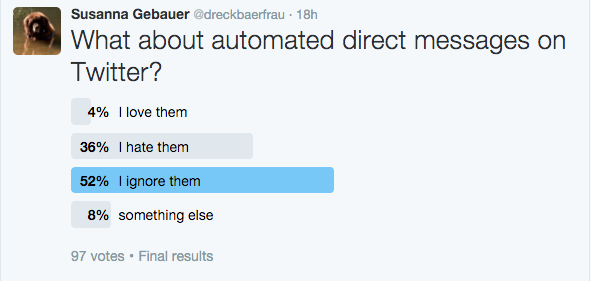 Another example are the automated direct messages on Twitter, which I already mentioned in the introduction of this post. I made a quick Twitter poll to ask my audience what they think about them. And the reaction does not surprise me. I have no doubt that they can be annoying or stupidly promotional. Still, they can work – and you still can win over all the people who claim they ignore them with the right message.
Another example are the automated direct messages on Twitter, which I already mentioned in the introduction of this post. I made a quick Twitter poll to ask my audience what they think about them. And the reaction does not surprise me. I have no doubt that they can be annoying or stupidly promotional. Still, they can work – and you still can win over all the people who claim they ignore them with the right message.
5. Not using automation yields better marketing results
More or less success is not a given when it comes to marketing automation. You always have to measure your outcome and adjust your activity accordingly.
The danger with marketing automation is that it is so quickly forgotten. Set up some automated tweets, do something else and totally forgot to measure if my tweets got me anything. That is a typical mistake with automation.
We should never automate because we can. Automation is a means of getting more out of your marketing effort, but to get there, you have to measure if you are getting it right or totally miss out on reaching your audience.
And the simple truth is, with growing accounts there is a point where you either need to hire someone to help you with your social media, or you will have to cut back on the time spend on your “real” job – or you will have to consider marketing automation.
6. It means „Set it and forget it“
Marketing automation is a fickle friend. Often we forget about the automated processes once we set them up. That is dangerous. Even if we carefully measured if what we are automating agrees with our audience, there may well be a time when everything is different. What worked well yesterday can totally go down the drain some days or weeks later. What works for one audience can be totally annoying to another.
Marketing automation needs the same kind of attention we give to other bits and pieces of our marketing process. Measuring and adjusting, collecting data and interpreting it needs to be part of all your marketing – marketing automation is no exception.
7. It’s a shortcut to success
Sometimes it seems automation is merely used to spam: Sending out more messages and more tweets or pins simply because automation helps you do this “more” is not the way to go. Before you automate anything in your marketing process you have to know what you are doing, only then automation may be an option to scale.
Automation may be able to help you scale and save time in your process, but marketing automation is not a guarantee of success. Sending tons of the wrong messages does not make the message right. And in the end trying to push something that is simply broken can badly hurt your brand – and marketing success.
8. It’s not about communication
If an account is not communicating with its audience, it’s not necessarily due to automation. Many of the large accounts on Twitter are guilty of losing the communication part in their activity. I am guilty there, too. But that is not because I use marketing automation. On the contrary. Marketing automation helps me save time on non-communicative processes, and I try to keep in the conversation. I know I badly fail, and I know I am missing out there. The truth is that I am getting so many comments, mentions, and responses I simply cannot check them all and respond.
But that is no excuse. And marketing automation is no excuse. Just because I schedule posts does not excuse you from communicating. If you don’t participate in communication in social media, that’s your choice, but it’s not the fault of automation.
9. It’s not personal
The question for me is, what is more personal: Me running my social media accounts in whatever time I have and using automation to get it done. Or an assistant or intern speaking in my name on accounts where people believe they are talking to me?
On my social media accounts you can be sure of one thing: If I am talking it is really me.
So do not claim that marketing automation always is not personal. Of course, you can set up automation and run accounts on autopilot. But that again is your choice and not a necessary by-product of marketing automation.
Final words
Marketing automation is often blamed for a lot of things: Failure, bad results, disconnection from your audience. But the truth is, these effects are your choice and not the fault of marketing automation.
Marketing automation is a tool (or rather a bunch of tools) that can help you run your social media like a pro without having to neglect your day job. Marketing automation can help you get done more with less time spent. It is neither a concept straight from hell nor does using marketing automation mean you are selling your social media soul.
Join our free Email Course to learn how to start your social media marketing journey:
All the basics in 4 Days, 4 Emails
Did you like the article? Please pin it!

